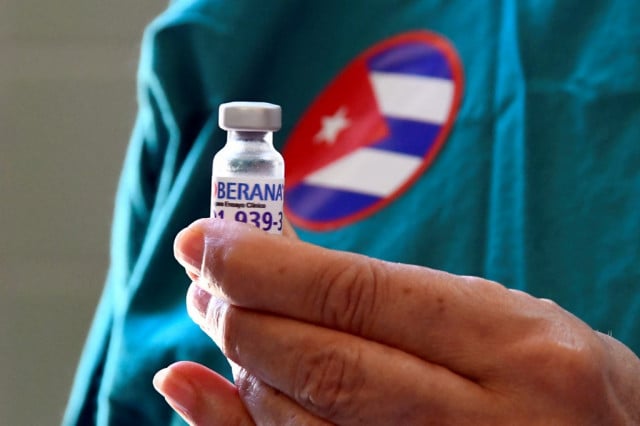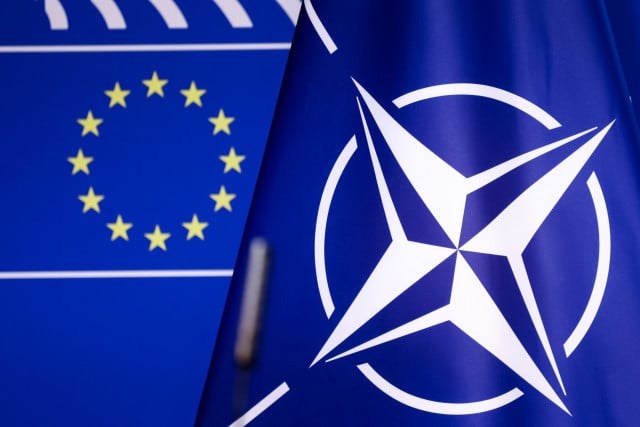Cambodia to Present Its Climate Actions at COP28

- By Meng Seavmey
- December 2, 2023 7:55 PM
PHNOM PENH — Cambodia will share its seven climate-action program at the 28th Conference of the Parties to United Nations Framework Convention on Climate Change (COP28) and the sideline G77 + China Leader Summit.
Environment Minister Eang Sophalleth will deliver the country’s plans at the conference, which is being held from Nov. 30 to Dec. 12 in Dubai, United Arab Emirates (UAE).
These plans reflect Cambodia’s commitment and active engagement in preventing and addressing climate change, the Ministry of Environment said through a Facebook post on Nov. 30.
One of those plans is Cambodia’s commitment to replace the 700MW coal-fired power plant project with liquid petroleum gas (LPG) power plant.
The Cambodian government also stands firm against the establishment of coal-fired power plants in the country, and upholds the prohibition on the construction of hydropower projects across the Mekong River, the ministry said in its post.
On Nov. 30, Prime Minister Hun Manet said that Cambodia would continue to forbid the construction of coal-fired power plants as promised at the COP26, which was held in 2021 in Glasgow, Great Britain.
Cambodia’s other measures include plans to develop a new reservoir dam to generate 1,000 MW of clean electricity by 2028, and increasing renewable energy by 70 percent through a focus on solar energy, hydropower, and wind energy, the Ministry of Environment post read.
The country is also implementing a comprehensive clean Cambodia strategy to reduce pollution from plastic bags, solids, and liquids. So far, more than 3 million people have participated in the implementation of this strategy, the post read.
The Ministry of Environment will also plant a minimum of 1 million trees every year in both open and protected areas to expand forest cover by 60 percent by 2050.
The two actions are among the strategies in the Circular Strategy on Environment 2023-2028 set by the Ministry of Environment in early November 2023.
“Additionally, the delegation aims to showcase Cambodia's enduring peace and stability, along with its pristine, green environment, positioning the country as an attractive destination for tourism, investment, and inclusive development,” the ministry’s post read.
Cambodia has been actively introducing climate actions despite being among the countries with the lowest emissions. However, the UNICEF’s report in 2021 ranked Cambodia as the 46th country most vulnerable to climate risks for children among 163 countries in the world.
During COP27 in 2022, former Environment Minister Say Sam Al said that Cambodia had allocated 2.3 percent of its Gross Domestic Product in public resources for climate actions and incorporating more renewable energy.
He had also pointed out that the $100 billion funding from developed countries to developing countries most affected by global warming had not been reached and had to be a priority.
On the first day of COP28, nearly all nations decided on funding to help compensate countries struggling to cope with loss and damages, and had given more than $420 million in total in just the first hour.
Sultan al-Jaber, president of the COP28 and UAE special envoy for climate change, said that the UAE would contribute $100 million. Other countries, including Germany, said they would contribute $100 million while the United States administration had said it “was working on the Congress to provide $17.5 million.
Cambodia was the second least-developed country to submit its Nationally Determined Contribution (NDC) to the UN Framework Convention on Climate Change with the goal of reducing by 42 percent greenhouse gas emissions by 2030 through the Long-Term Strategy for Carbon Neutrality. Cambodia updated its NDC submission at the end of 2020.
The Conference of the Parties to the United Nations Framework Convention on Climate Change (COP) is held annually. Attended by more than 70,000 delegates from around the world, talks focus on the climate change situation and determining countries responsibilities to limit global warming at 1.5 Celsius through the reduction of greenhouse gases by 45 percent by 2030 in order to reach net zero by 2050.















